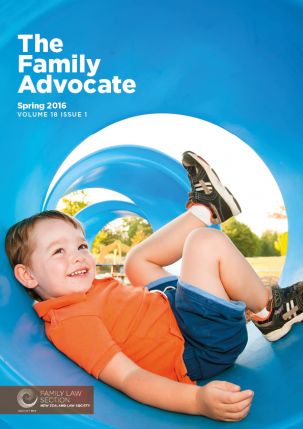Section 182 of the Family Proceedings Act 1980 - which was once a historic and overlooked provision - is now potentially the best weapon in the "trust busting" arsenal and its use is likely to become more frequent since the Supreme Court decision in Clayton v Clayton, says Auckland family lawyer and Wynyard Wood partner Zandra Wackenier.

Writing in the Spring 2016 issue of the Law Society Family Law Section's quarterly magazine The Family Advocate, Mrs Wackenier says as family trusts have become more commonplace, so too has people's tendency to dispose of property to a trust on the assumption that it will be safe from the Property (Relationships) Act 1976.
She says while sections 44 and 44C of the Act provide some relief, they have limitations.
"What if the settled property is not relationship property? What if there has been no 'disposition'? And what if the trust does not generate an income sufficient to provide compensation?"
Mrs Wackenier says it cannot be denied that section 182 of the Family Proceedings Act is gathering momentum.
"In essence, section 182 gives the Court a wide discretion to revisit the terms of any agreement or settlement made before or during a marriage or civil union," she says.
In considering whether the court has jurisdiction to make orders under section 182, Mrs Wackenier says there is a checklist: (1) Were the parties married? (2) Has an order dissolving the marriage been made? (3) Was that order just made, or made a "reasonable time" ago?
"If you answered these questions affirmatively, jurisdiction is made out, and section 182 may be invoked by either party to the dissolved marriage, irrespective of whether there are children of the relationship."
If the case is one where the court has jurisdiction under section 182, in respect of a nuptial settlement the court may make an order varying the terms of the trust, resettling the trust, or vesting trust capital in a spouse.
Mrs Wackenier says discretionary family trusts are the most common "nuptial settlements".
She says section 182 is quite clearly a discretionary remedy. It does not provide a detailed list of factors to be taken into account, but simply states that the court's powers may be exercised, and orders may be made, for the benefit of the children of the marriage or civil union, or of the parties to the marriage or civil union, or either of them.
It further states that, in exercising its discretion, the court may take into account the circumstances since the date of the agreement or nuptial settlement, and any other matters the Court considers relevant.
Looking at what Clayton v Clayton [2016] NZSC 30 adds to the "existing section 182 landscape", Mrs Wackenier says the Supreme Court took a generous approach to the meaning of "nuptial settlement".
She says this has "potentially left the door open for a greater number of settlements to fall within that definition". The extent to which this "widened" definition will be taken is yet to be seen.
"The Supreme Court suggests that so long as a trust has the relevant connection to the marriage, and one or both of the parties to the marriage were beneficiaries, there could be a nuptial settlement even if it was settled by a third party and had a wide range of other beneficiaries other than the parties to the marriage.
"Therefore, in future, if the court is presented with a factual scenario akin to that of Kidd v van den Brink, it may well be that a qualifying nuptial settlement may be found to exist."
Mrs Wackenier says Ward v Ward [2009] NZCA 139 made it clear that section 182 can be applied not only to assets initially settled on a nuptial settlement, but also assets later added to the initial settlement.
"It is less clear whether section 182 can apply to such assets if the initial settlement was not nuptial. However, in Clayton v Clayton, the Supreme Court suggests that subsequent disposition of property to such a trust may constitute a post-nuptial settlement."
